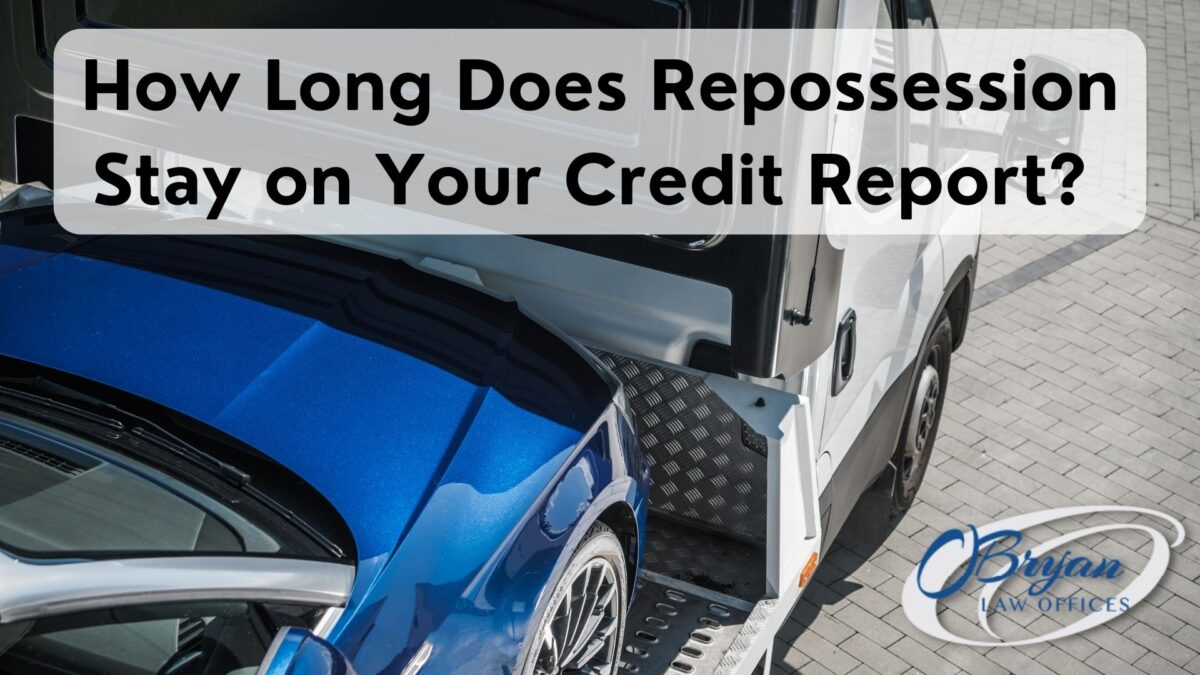No one wants to miss an auto loan payment or mortgage payment. Unfortunately, emergencies happen, causing us to get behind on payments. When one missed payment snowballs into multiple missed payments, your car and mortgage can become delinquent, leading to the lenders seeking repossession of the property.
If you’re facing repossession, you have options available to avoid losing your home or car. The Kentucky repossession attorneys at the O’Bryan Law Offices will provide specialized legal advice unique to your situation. We will determine the best course of action to avoid a repossession or minimize a foreclosure on your credit report.
The attorneys at the O’Bryan Law Offices know that missing payments on loans is never anyone’s intention. They are often the result of a medical emergency or other life-altering situation. Trust our law firm to help you during this difficult time, and you’ll receive compassionate and attentive service. If you’re facing repossession of your home or car, call us today at 502-339-0222 for a free consultation.
What Is Repossession and How Does It Work?
Repossession occurs when a person fails to make payments on a loan, and the lender takes the property back. Lenders will usually resell that property to recover their losses. Lenders usually try to work with individuals struggling to make payments. They do this by creating payment plans before they begin the repossession process.
What Can Be Repossessed?
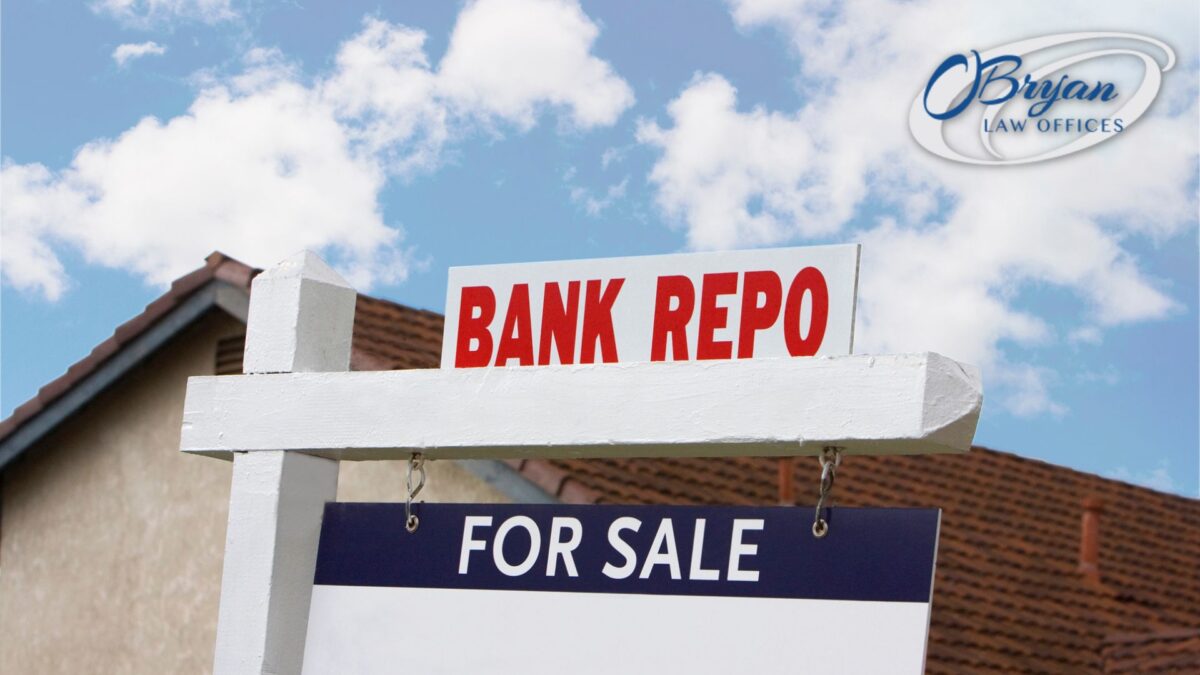
Homes and vehicles are the two most typical items that can be repossessed. If a person misses payments on their car loan, their vehicle can be repossessed. The vehicle is the collateral for the auto loan. So, if the borrower misses car payments, the lender can take the vehicle away and resell it, sometimes without notice. The lender will then sell the vehicle to recoup as much money as possible.
Similar to a car repossession, when a person misses payments on their mortgage, their home can be foreclosed on. The lender can put the house up for auction to make back the money that was lost from the missed loan payments. A homeowner can also risk foreclosure if they fail to honor other terms and conditions outlined in the mortgage. Those facing foreclosure should contact a foreclosure defense attorney in Kentucky as soon as possible.
A vehicle repossession and home foreclosure will be reported to the three major credit bureaus: Equifax, Experian, and TransUnion. But how many car payments can you miss before repo? Generally, that depends on the leniency of your lender.
How Can I Prevent a Repo from Happening?
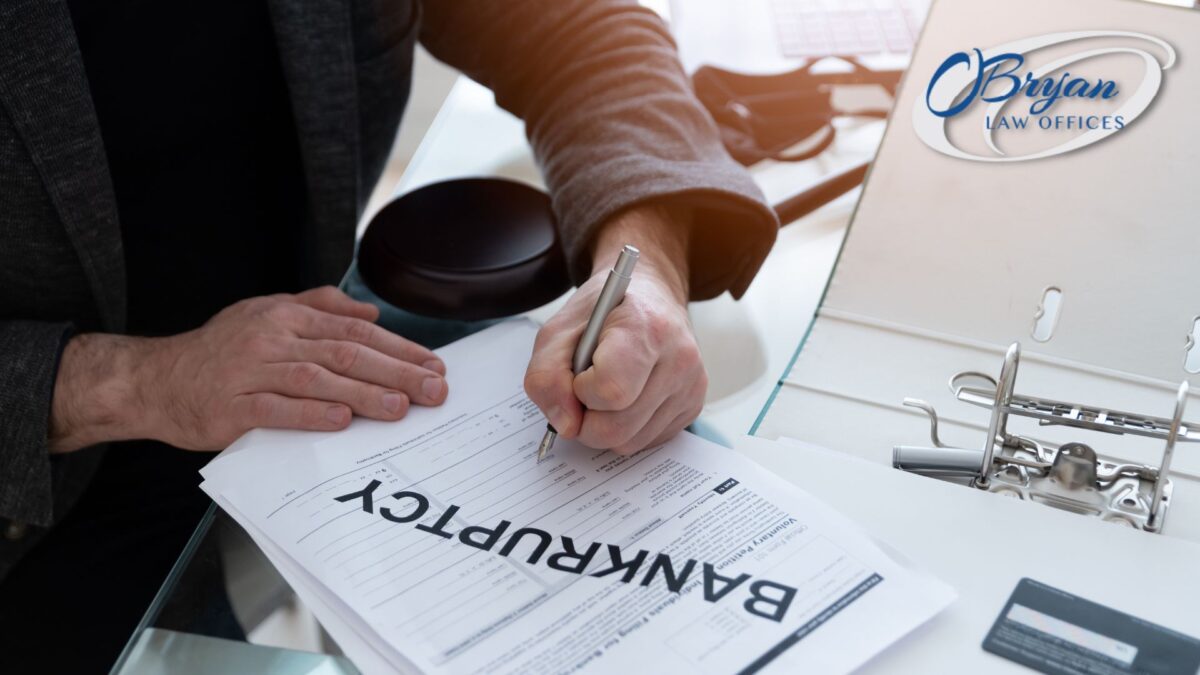
Repossessions happen when a person has missed, or late payments, so the best way to avoid a repossession is to make payments on your loan balance. However, things happen, and sometimes a missed or late payment can occur. If you know that you will be late on your mortgage or car loan, reach out to your lender and let them know. Lenders will often negotiate a payment plan before they pursue a repossession.
The repossession process is costly, so many lenders would instead work with their borrowers and devise an alternate payment strategy. Often, the lender will make more of their money back from restructuring the payment plan than from repossession. It’s important to keep an honest and open line of communication with your lender instead of ignoring late payments and notices.
If you’re able, another option is refinancing your loan. This option isn’t always available and will depend on your financial situation. When you refinance your loan, you replace your current loan or mortgage with new terms like a lower monthly payment.
Chapter 7 Bankruptcy
If you’re afraid that a car repossession or home foreclosure is looming, you may want to consider filing for bankruptcy. When a person files for bankruptcy, lenders and creditors can no longer hassle you about missed payments. A Chapter 7 bankruptcy can offer debt relief for credit card bills, medical bills, and most unsecured debts. Unfortunately, Chapter 7 does not protect loans that involve collateral like auto loans and home mortgages, so you may lose your car or home.
To avoid losing your car or home during a Chapter 7 bankruptcy, you can file a bankruptcy exemption. It’s also beneficial to get caught up on missed payments and ensure your account status is current before you file bankruptcy. If you can file an exemption and get caught up on payments, you have a better chance of keeping your home and car. An experienced Kentucky bankruptcy attorney at the O’Bryan Law Offices will evaluate your car loan or mortgage and determine whether you qualify for an exemption.
Chapter 13 Bankruptcy
If you’re considering filing bankruptcy to avoid losing your car or home, a Chapter 13 bankruptcy would be better suited for you if you qualify. Since this bankruptcy allows individuals to pay off debts over three to five years, you should be able to pay off the auto loan or mortgage that you’ve gotten behind on. Your court-appointed bankruptcy trustee will include your mortgage and car loan when they create your repayment plan.
When you file a Chapter 13 bankruptcy, the car repossession and/or foreclosure is put on hold as long as you make payments towards the loan. Working with a Chapter 13 bankruptcy attorney at the O’Bryan Law Offices will increase your chances of keeping your home and car during this process.
Can You Dispute a Repossession?
If the repossession on your credit report is inaccurate or falsely reported, you can dispute the repossession with the credit bureaus. The Fair Credit Reporting Act (FCRA) was created to protect credit reports and the information provided on them. According to FCRA, everyone has the right to an accurate credit report and can file a dispute at any time if they believe incorrect information affects their credit history. If your credit report lists the wrong dates, balances, names, addresses, or other relevant information, you may be able to dispute the repossession.
To file a repossession dispute with the credit bureaus, you need to include the following documentation:
- A copy of your credit report with the disputed information highlighted.
- A letter stating why you’re filing a dispute, what information is incorrect, and why.
- Any additional documents that can prove your dispute
A disputed repossession doesn’t always mean it will be removed from your credit report. The credit report will reflect the new information when the lender provides the credit bureau with updated and accurate information.
If you believe you have a false repossession on your credit report, the three credit bureaus offer free credit score checks. A free credit report won’t affect your credit score because it’s considered a “soft check.” When applying for a loan, the lender will conduct a “hard inquiry,” which can impact your credit score.
How Does a Repossession Affect Your Credit Score?
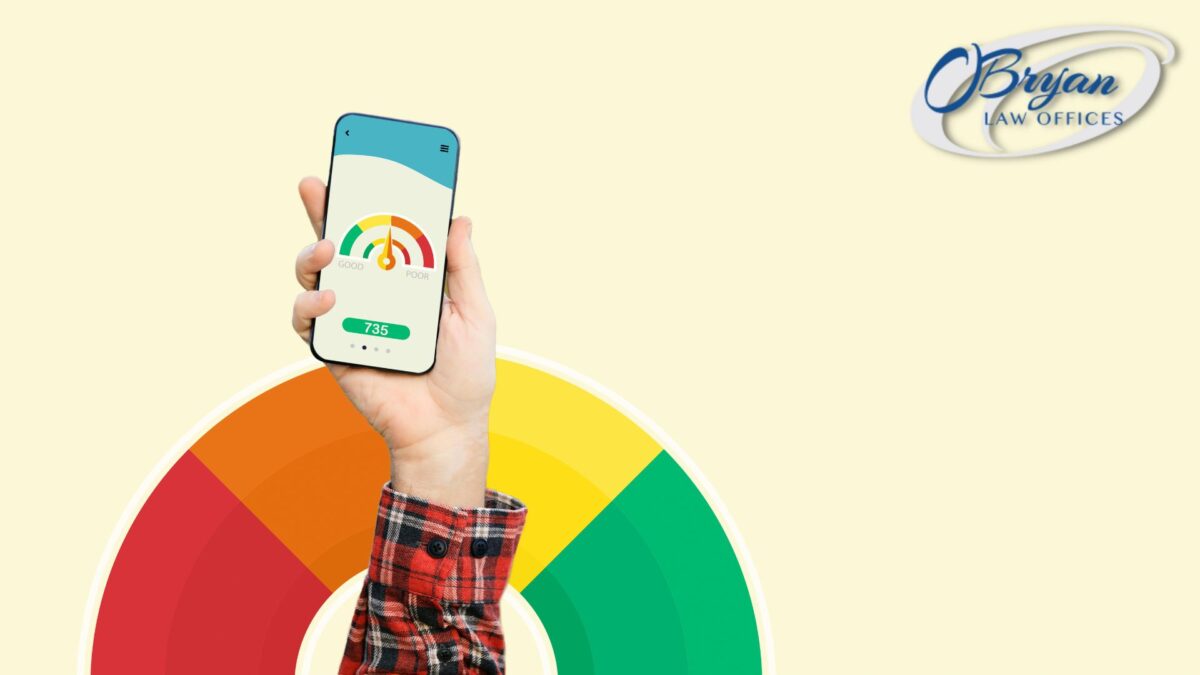
Your credit score is most significantly affected by your payment history. It’s one of the most critical items lenders look at when determining how likely you will make future payments. Your payment history can make or break your chances of getting future loans.
Your credit score will most likely take a significant hit as soon as the repossession shows up on your credit report. It’s difficult to determine how much repossession will affect your credit score since many other factors affect credit scores.
Repossessions are considered a negative mark on your credit score, significantly affecting your ability to qualify for new credit or other services. If you can qualify for new credit following a repossession, you may be stuck with higher interest rates and fees. These higher monthly payments will compensate the lender for taking a chance to extend your credit with a repossession on your credit history.
How Long Does a Repo Stay on Your Credit Report?
A repossession will remain on your credit report for up to seven years. Those seven years will begin on the original delinquency date that led to the repossession. If you can get the account current, the previous delinquencies will still be visible on your credit report for seven years. After those seven years, your delinquent history will be removed from your credit report, and the rest of the payment history will stay on your report.
The account will become positive if there are no other delinquencies on the payment history. All positive accounts remain on credit reports for ten years, starting when they were closed. If the account remains open, it will stay on your credit report.
If a repossession account is never brought current, the account will be removed seven years from the date of the original delinquent payment. The credit bureaus will remove this account once it’s hit the seven-year mark. You will not need to request that the account be removed from your credit report.
Can You Remove a Repo from Your Credit Report?
Removing a repossession from your credit report is possible, but your options are extremely limited. As mentioned above, repossession can be disputed only if the information is inaccurate. A disputed repossession will often stay on your credit report with corrected information. A complete repossession removal from your credit report is rare.
If the repossession is valid and accurate, you can negotiate a payment plan in exchange for them removing the repossession from your credit history. Lenders don’t have to accept the terms of a proposed payment plan. If they turn your proposal down, you must wait seven years before the delinquent account falls off. If the lender agrees, make sure you have the payment plan and agreement officially documented. Lenders want to recover any money lost on repossessed items, so many will likely decide to work out a repayment plan with you.
What Happens to a Repo After 7 Years?
If you’re unable to negotiate a repayment plan with your lender to remove the repossession from your credit report, the account will remain on your credit report for seven years. Once the seven-year mark has passed, the account will be removed from your credit report. There is no need to reach out to the credit bureaus to have the account removed; they will automatically remove it.
How to Rebuild Credit After a Repossession

You don’t have to wait until your repossession falls off your credit history to start rebuilding your credit. Making small changes to your finances, even during repossession, can increase your chances of receiving a loan. By adopting the strategies we’ve listed below, you should begin to see improvements in your credit score.
Make Payments On Time
If you have other personal loans or accounts, the best way to rebuild your credit is by making on-time payments. Payment history affects 35% of your FICO score and is the most significant factor determining your credit score. When seeking approval for a loan, lenders will evaluate your credit history to see how you manage payments and debt.
Pay Off Outstanding Debts
Another factor that affects your credit score is the amount of debt you owe compared to your credit limit. The credit utilization ratio makes up 30% of your credit score, so in addition to making payments on time, you need to budget for paying off credit card balances and other outstanding debts. If you’ve had a car repo or a home foreclosed on, you can still pay off leftover balances due even if the lender has sold the property. When you make payments on past-due accounts, lenders will be more likely to approve a loan in the future since you’re working to resolve that debt.
Catch Up On Overdue Payments
If you have missed payments on other accounts, you should make monthly payments over the minimum payment amount. Ridding your credit history of any overdue or delinquent accounts can help improve your credit score and help you work towards living debt free.
Become an Authorized Credit Card User
Having a repossession on your credit report will make applying for credit cards and loans difficult. Another way to rebuild your credit is by becoming an authorized user on someone else’s credit card. The credit issuer must approve and report the authorization to the three credit bureaus. The only downside to this option is if the account owner misses any payments or overspends. This can result in a negative mark on your credit.
Take a Credit Counseling Course
Enrolling in a credit counseling course can help you avoid falling into the same financial hole that led to your repossession. We do not offer credit counseling courses, but we can help you find approved credit counseling services in Kentucky. Unfortunately, some people take advantage of individuals in these situations. So, finding a legitimate credit counseling course is important to avoid further debt.
Contact a Kentucky and Indiana Bankruptcy Attorney at O’Bryan Law Offices
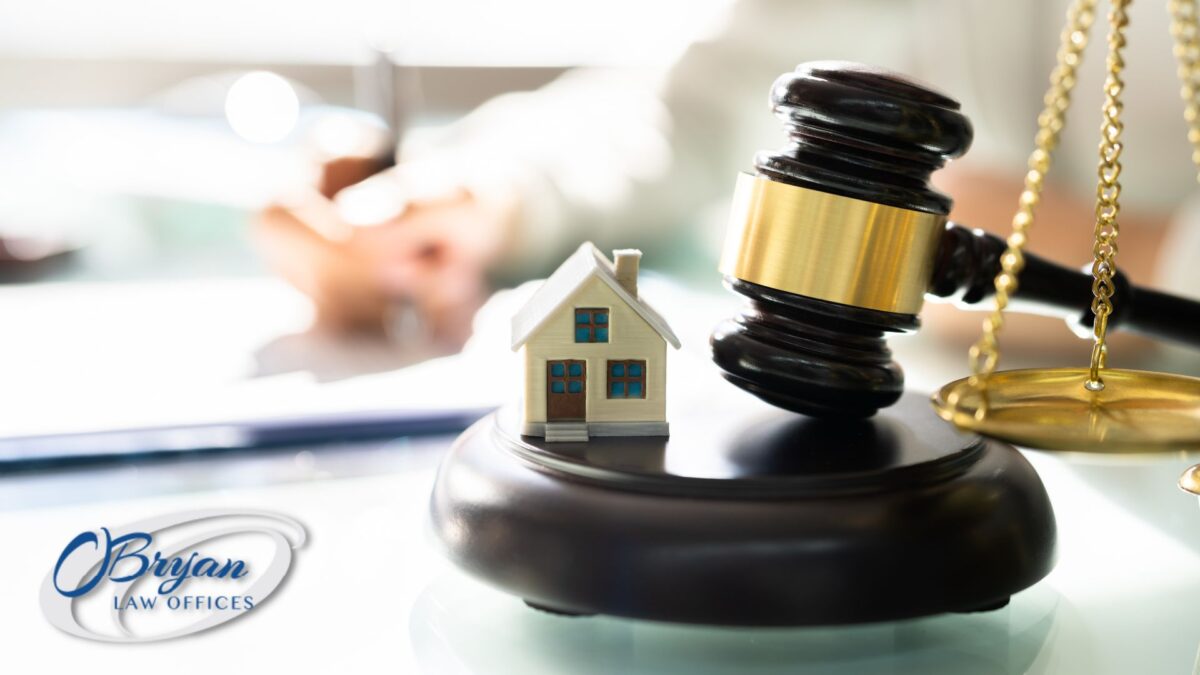
Facing a repossession can be scary, but you don’t have to go through it alone. Maybe you have an impending car repossession or home foreclosure. The Kentucky bankruptcy attorneys at the O’Bryan Law Offices are here to help. Julie O’Bryan, and her team have been helping residents in the Kentucky and Indiana areas for almost 30 years.
Trust the O’Bryan Law Offices to assist you in resolving your debt. You can rest assured that your attorney will come up with the best solution to help avoid repossession and start you on a path to living debt free. To discuss your options surrounding your repossession with an experienced Kentucky bankruptcy attorney, call us at 502-339-0222.


